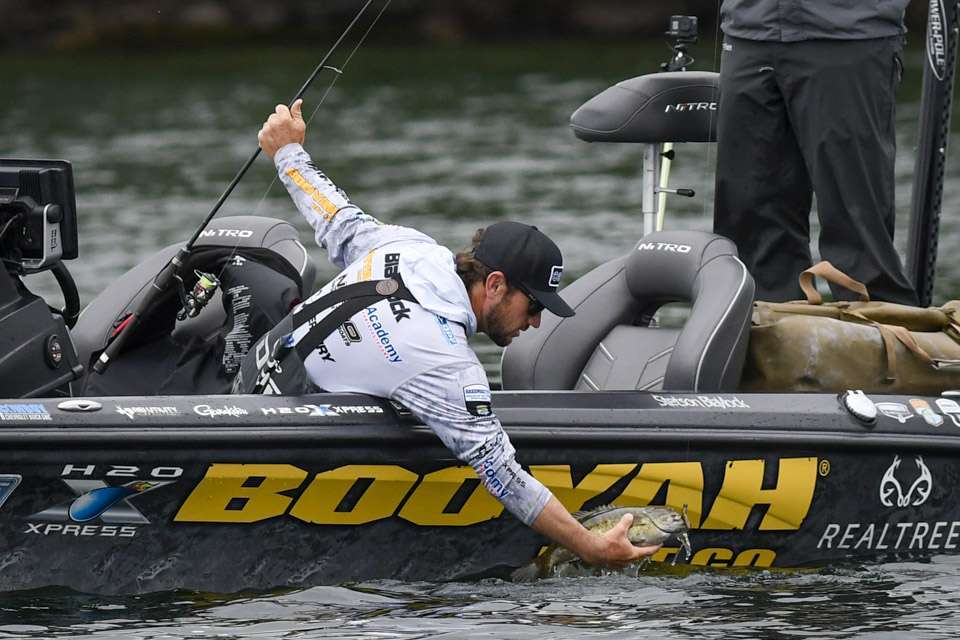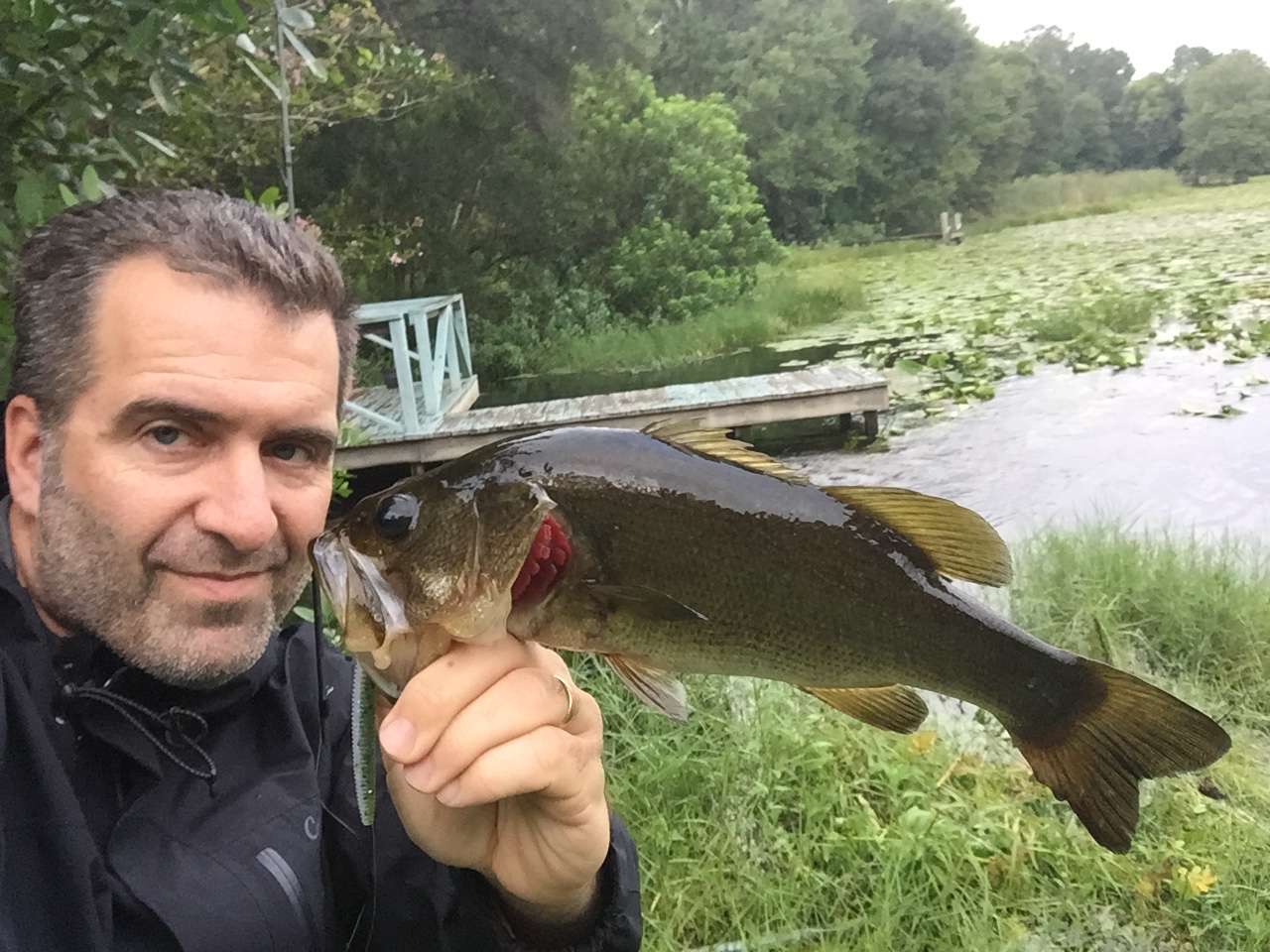
Each time a tournament returns to a previous venue, the natural reflection/projection conversation includes a look at productive baits. That thought is never more noteworthy than with a Bassmaster Classic. While results from the previous two Classics on Grand Lake O’ the Cherokees are old news, the details thereof remain relevant.
The Classics of 2013 and 2016 saw mostly old-school techniques — jigs, spinnerbaits, crankbaits and Texas rigs — seal the wins. There’s no question those baits will see a splash or two this time around, but much has changed in the world of electronics since the Classic’s most recent Grand Lake visit.
Here’s a fair question: Will the 2024 Classic winner rely on old-school tactics, modern techniques or a blend?
Here’s the fair answer: Nobody knows. Nobody ever knows. All we can do is frame each new Classic against historical data of venue and/or angler, factor in current details and have fun chewing on the speculation sandwich.
Is any major sporting event different?
If that sounds anticlimactic, it really isn’t. Rather, searching for truths we simply won’t see until they happen points us to definable details more worthy of immediate attention.
The champ weighs in
Reigning Classic champion Jeff Gustafson isn’t necessarily banking on the moping (Damiki rigging) tactics he used last year in Tennessee at Fort Loudoun-Tellico Lakes, but he’s expecting a good mix of old and new. Weather, he said, will shine the spotlight one way or the other.
“I think we’ll see forward sonar mixed in big time,” Gustafson said. “Whether people like it or not, it will play a factor in every single tournament moving forward.
“For this Classic, I think if it stays cool, it’ll help the guys that want to fish off the bank. If it gets nice, it’s going to favor guys that want to fish the bank. I think you will see more traditional, old-school tactics at play than the past couple of Classics, but live sonar is going to be involved also.”
Deciding factors
Personal preference definitely plays into Classic game plans, as this no-points, go-big-or-go-home format tends to find anglers fishing their strengths in an effort to put themselves in contention to win. However, much more will go into those game day decisions.
Timing: The vernal equinox (day/night equal in length) falls on March 19, or three days before Classic competition begins. That puts us at the leading edge of a potentially entertaining time of year. As Gustafson alluded, fickle spring weather tends to stir the pot, so adjustments should be expected.
“Even though it’s not a northern fishery, Grand is one of the northernmost fisheries that we go to for a Classic,” said Stetson Blaylock, who makes his fifth Classic appearance. “It’s in that section of the country where we could still be getting blasts of very cold air all the way through March, so multiple things ought to be playing.”
Run-in rules: Precipitation — rain or snow — also could play a role, as one good warm front rainfall will push a lot of dirty water into the system. Not necessarily a bad thing, but certainly a consideration.
“I’ve seen Grand, in a matter of days, get really dirty, and that completely changes the dynamics of that fishery,” Blaylock said.
Already coming: Taking all of this into account, Blaylock said the overall mindset of Grand Lake bass will have a shoreward focus. This doesn’t necessarily remove modern sonar tactics, but this period is definitely when old-school prespawn searches typically shine.
“You’re talking about springtime, and whether it’s early spring or not, those fish are already thinking spawn; that’s what they have on their mind,” Blaylock said. “It doesn’t matter hold cold it is, a lot of fish are already heading in that direction.”
Tactical menu
Noting that he did not pre-practice, Gustafson said it’s very possible the moping technique that earned him the sport’s most prestigious title could come into play on these Oklahoma waters. Adding jerkbaits and swimbaits to the live sonar-heavy rundown makes sense.
Addressing likely old-school tactics, Blaylock said he’s looking for a lot of meat-and-potatoes power fishing — covering water and tracking ‘em down.
“There’s going to be guys who just go down the bank with a jig in their hand; there’s going to be guys who just burn the bank with a spinnerbait, or a crankbait, or a jerkbait,” he said. “With those techniques, they’re not targeting single fish.
“Again, that’s not saying these guys won’t use their electronics, but these techniques will be players with guys targeting visible cover like docks, stumps and rock formations, instead of what they’re seeing on their screen.”
Worth noting, Blaylock said forward-facing sonar has spread its tendrils into practically every aspect of the game. Example: In the 2022 Bassmaster Elite at the St. Johns River, Scott Martin used Lowrance Active Target to snoop around Lake Apopka grass pockets for bed fish. Creatively leveraging these live views could prove to be the difference maker — even among more traditional tactics.
“It doesn’t matter if a guy is using old-school tactics, if he’s not using his electronics and forward-facing sonar to his advantage, there could be somebody that sneaks up and wins doing it better than he’s doing it (using) their electronics,” Blaylock said. “It’s not that you can’t win without (forward-facing sonar), it’s just that some guys are getting so good at it with every aspect of their game that it’s going to be a player, no matter what they’re doing.”
Tool for the task: Making his Classic debut, Wisconsin pro Adam Rasmussen agrees that forward-facing sonar will make a mark on this year’s Classic. However, he believes it’ll play more of a utilitarian role.
“I don’t think it will be anything where you’re going to stare at a fish and chase it down and catch it. I think it will be more about making a precise cast to a piece of structure just to speed that process up.”
Seasonal sensibilities: We’re not likely to see half the field towing the nose of their boat and staring at shallow beds, but with this year’s Classic later than the event has ever been held at Grand, sight fishing is not off the table.
Blaylock said he’s not ruling out the occasional bed fish, but prespawners will likely account for most of the action — a point that could bring old-school and modern tactics into play.
Weapons free: Gustafson knows what he wants to do, but he’s not locking himself into any particular mindset.
“Guys are going to do well employing many of the known techniques, but that being said, it wouldn’t’t surprise me to see someone do something completely off the wall and do well also,” he said. “We’ll all have to show up with an open mind, but no matter how we plan or prepare or expect to catch them, the weather during the event will be the biggest factor to consider on how we fish.”
Jason Christie agrees and adds this: “I really think it could go down a lot of ways, from sight fishing, cranking, sonar minnow, spinnerbaits — and very possibly a combination of several of those. I think it’s hard to win a Classic on just one technique.”
Concentrated effort: Could the Classic victor earn the sport’s most coveted trophy on one spot? Blaylock believes Grand Lake offers such potential — particularly during the prespawn. This is the time of year where dialing in a key little piece of real estate could reward a competitor with that magical scenario where you have ‘em coming to you.
“I think that lake is one where a spot could very well produce a win,” Blaylock said. “Past Grand Lake tournament results often show that the winner had a magic spot.
“I’ve watched a lot of them over the years, and I’ve even been part of some of those tournaments. It’s amazing how one area, one creek, one place you wouldn’t think could produce a win did. A guy could definitely find a (key spot) and win this Classic.”





